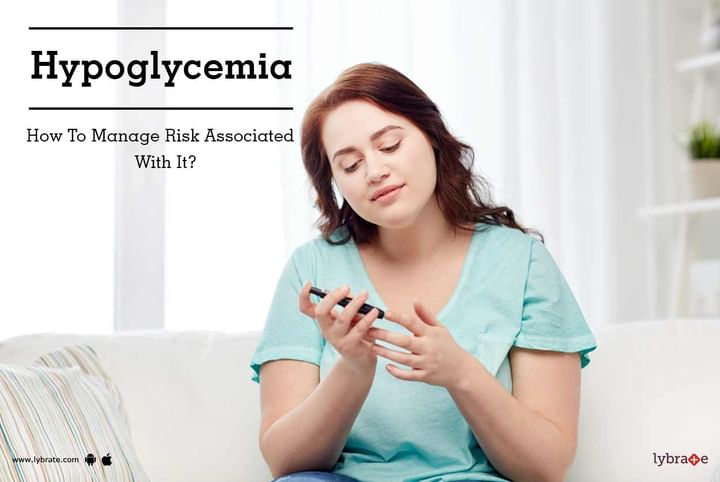Hypoglycemia - How To Manage Risk Associated With It?
For a healthy, non-diabetic person, the blood glucose level should be between 70-100 mg/dl (fasting) and not more than 140 mg/dl (postprandial, checked 2 hours after a meal). However certain conditions (especially diabetic patients who are on oral medications or insulin) can result in the blood glucose level to fall abnormally low (well below 70 mg/dl), a condition medically known as Hypoglycemia.
A sudden dip in the blood glucose level can cause weakness, increased heartbeats, palpitations, dizziness, profuse sweating, headache, shakiness, confusions (a person loses the ability of proper thinking and reasoning). The skin may also turn pale. A person finds it difficult to sleep. In extreme and untreated cases, a person may lose consciousness and even slip into a coma. If you experience any of the mentioned symptoms, seek assistance immediately.
Risks associated with Hypoglycemia and how to manage it
Diabetic patients should be extra careful with their diets and medications. As already stated, untreated hypoglycemia, especially if the blood glucose level is below 40 mg/dl can cause a serious health scare. A more serious type of hypoglycemia is the one that a person experiences at night, often in their sleep, a condition termed as Nocturnal Hypoglycemia. Many people in their sleep are unable to react promptly, resulting in serious consequences.
Further, there may be
- Night sweats
- A person may get nightmares and wake up feeling tired and exhausted in spite of having their full quota of sleep
- Some people may also experience great difficulty in waking up
- Headaches are also common
For diabetic patients, the situation at times can prove to be life threatening. To avoid such situations:
- Doctors always advise night snacks (can be a cucumber, small apple slice, a small slice of bread with meat or cheese. Try and avoid a high carb or high-fat foods) especially for people with diabetes or those who take their dinner early.
- Consuming alcohol at night can also trigger Nocturnal Hypoglycemia and is best left avoided.
- To provide instant relief, the affected person should be made to eat something sweet such as glucose tablets or candy. If these are not available, you can also give the person some sugar (between 10-15 grams) to increase the glucose level in their body.
- It is important that you do not panic.
- As a safety measure, it is best to keep a glucometer at home and get your glucose level checked every alternate day (if not every day).
- One should also be careful about their diet. Do not keep your stomach empty for a long time. Munch on small snacks at regular intervals.
Hypoglycemia can be treated and managed if diagnosed at an early stage. Prolonged hypoglycemia (mainly in diabetic patients) can also result in cardiac problems.
In case you have a concern or query you can always consult an expert & get answers to your questions!



+1.svg)
